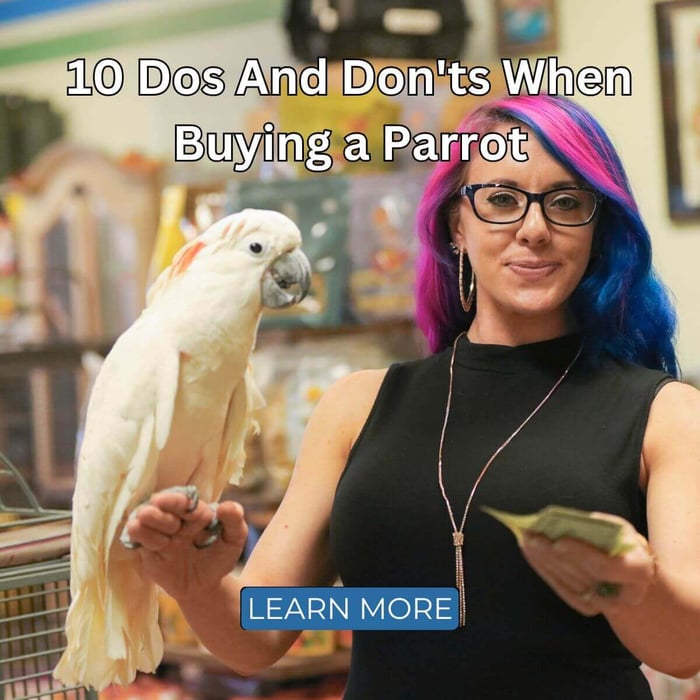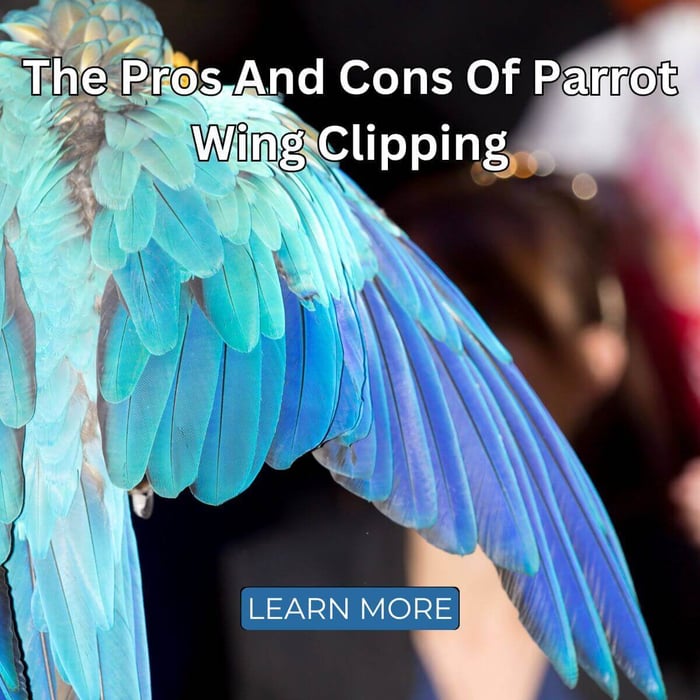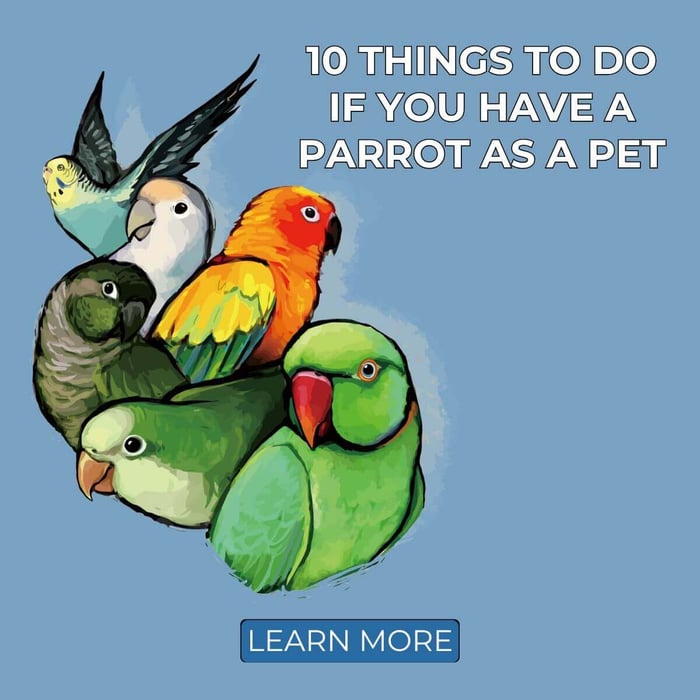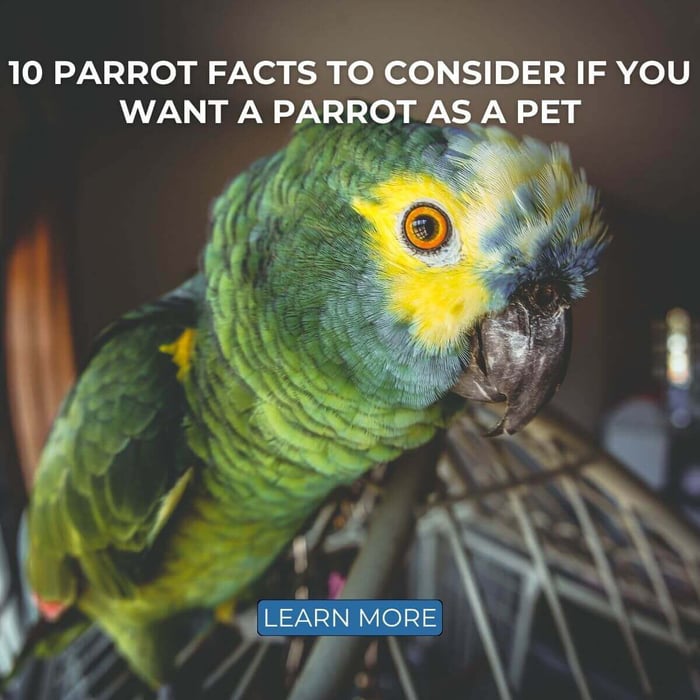Are you Buying a Parrot? 6 Things to Keep in Mind
Thinking of buying a parrot to add to your family?? Congratulations! These colourful tropical birds can make great pets and friends for life. However, as excited as you are, don't run out to the pet shop around the corner just yet. In order for this to turn out a positive experience rather than a bottomless vat of problems, there are a few things to consider before you take the plunge.
Here are six things to keep in mind when getting your first parrot, choosing a breeder, and more!
1. Do Your Research First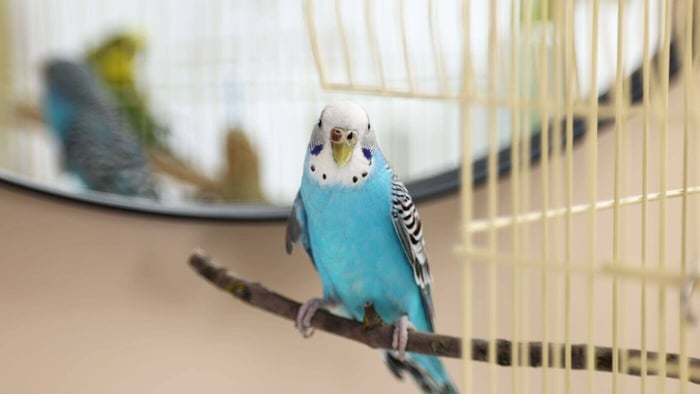
Many first-time parrot owners end up with a bird that's completely unsuitable for them because they get caught up in their enthusiasm and forget to do the required research. As an example, while African grey parrots make mighty cool pets with their talking abilities, a quick look at their care requirements reveals they're not for everyone. Beginners may want to go for a less sensitive species like a cockatiel instead.
Even if you do choose one of the "beginner" parrots, don't be fooled into thinking that this means you're getting a "set-and-forget" type of pet. All species of parrots are demanding in terms of the attention, diet and housing they need. Do you have space for a large cage? Are you willing to spend money on specialised food? What about being able to maintain an emergency vet fund? Additionally, how will you react if it turns out your new bird isn't tame but rather fearful and bitey?
If all of those things sound fine to you, you're on the right track. Still, remember that unexpected behavioural and health issues can always pop up. Although there's a reason so many people keep parrots (they can be loads of fun to have around!), they're just not the easiest pets.
Be sure to have a look at our article on 10 things to consider if you want a parrot as a pet. We also have care guides for most parrot species. Don't skip reading them to learn more about the species you're interested in and what you can expect from it.
2. Buying a Parrot: Finding a Breeder
Did you make it through Step 1 without changing your mind? Awesome, with a bit of luck, you'll be able to bring your dream parrot home soon. Here at Parrot Essentials, we're fans of adopting rather than shopping, but it's important to keep in mind that a rescue bird may come with some traumas that you are not yet equipped to handle.
Unless you can find a parrot up for adoption that is well-socialised and at low risk for possible behavioural issues due to trauma, it's usually best to go directly to a breeder. Give pet stores a miss, as there's often no way of knowing where their birds came from. The risk of ending up with a fearful parrot with health issues that were produced in a "parrot mill" type of breeding facility is high.
Okay, so a breeder it is. Where do you find one? Here are some of our tried and true tips to start the search:
- Search for local parrot associations.
- Ask in (local) parrot-centred Facebook groups and/or forums.
- Ask anyone you know locally where they got their bird(s) from and whether they were happy with the breeder.
Once you've found one or multiple breeders, shoot them an email or ring them up. Tell them what you're interested in. Does their response sound professional to you? Ask for some pictures and videos of the birds they have on offer, as well as some details about the clutch in question.
3. Buying a Parrot: Visiting the Breeder
Yep, you heard us: if you're buying a parrot, VISIT your breeder. We're aware that some breeders are apprehensive about allowing visitors due to hygiene and the risk of introducing diseases, but it's just really important for a buyer to see who and where they're buying from. Don't meet in a parking lot somewhere.
It's a good idea to prepare a list of questions and things to look out for before you rock up to the breeder's facilities, which will often just be their home if they're a hobbyist.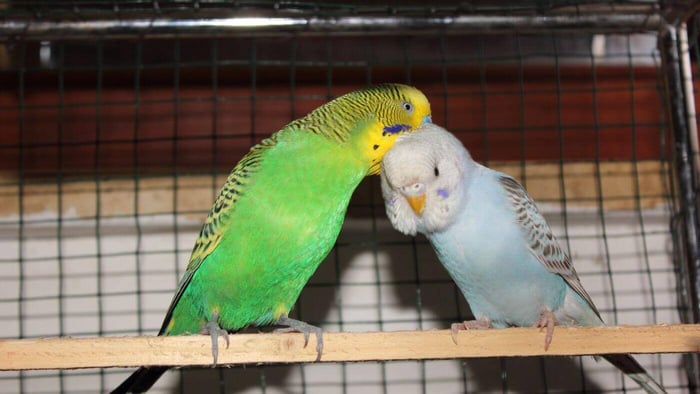
What to look for and ask
- Hygiene: Have a look at the cages. It's normal for breeding cages to be a little smaller, but they should always be clean and not cramped. No rust, no excessive droppings on the floor, clean water and clean food bowls are what you're after.
- Knowledge & experience: Does what the breeder tells you about the parrot you've chosen match what you found in your previous research? Do they look like they know how to safely handle their birds? A breeder's attitude towards their flock can be a little more business-like than that of a regular parrot owner, but you don't want someone who appears to view birds as lifeless products.
- Flock health: How do the birds look? Are they active and clear-eyed, not missing feathers, with appropriate nail and beak lengths? Also, can the breeder tell you who their avian vet is? Any vet file for the baby or for the parents that they can show you?
- Diet: Ask what the parents and the babies are eating. You're looking for someone who feeds a balanced diet, not something exclusively based on dried seeds. Babies that are (almost) exclusively fed by the parents are great, and if the breeder is supplementing by hand-feeding, this should be done using a suitable formula.
- Breeding practices: Look up beforehand to see what the appropriate age is for this particular parrot species to start breeding, and ask about the parents' age to verify they're not too young. How many clutches do they produce a year? You'll want to avoid breeders that overbreed their birds.
- Returns: What if your new parrot turns out to be sick? Agree on a return or refund policy before agreeing to pay for a bird.
We know this sounds like a lot, but a good breeder won't have a problem with you asking these questions. Remember, if you don't like the answers you're getting, or if you don't like what you see, or if you just don't feel like you connect with this breeder, just tell them you will think about it and leave. Don't let yourself be pressured into anything.
Tip: Always be suspicious of parrot breeders who don't ask YOU questions. If they care about bird welfare, they'll often try to gauge your knowledge and your plans for the bird. Some will even want to see proof that you've got an appropriate cage ready to go.
4. What to Avoid
Please pay attention here! Through our years of experience in parrot training and owning a parrot hotel, we've come into contact with hundreds of birds. Unfortunately, a significant number of them struggled with behavioural issues like biting, excessive vocalisation, feather plucking, anxiety, fear and more. In some cases, the owners were at their wits' end.
Why are we telling you this? Because a lot of these issues stem from the breeder. Many of the parrots in question were already affected by bad bird husbandry before they ever made it to their forever home. That's why we'd like to briefly discuss a few basic issues that we see time and time again.
The following can impact a parrot negatively to the point where it needs extensive training to be able to enjoy life like a normal bird. You should keep it in mind while buying a parrot:
Breeder clipping wings & recommending wing clipping.
If the breeder you're visiting keeps their flocks' wings clipped, is trying to sell you a bird with clipped wings or is recommending you have it done, they are unfortunately not the one. Although wing clipping is still a relatively widespread practice, we don't condone it for anything but medical reasons (like for a blind bird).
Wing clipping takes away the essence of a parrot. We're not just saying that because it's "sad" but also because it can cause health and behavioural issues. Badly clipped wings can cause injury, and the resulting sedentary lifestyle is a risk factor for premature death due to obesity. Additionally, you're taking away a prey animal's main way to defend itself, namely to flee. This may cause it to choose another option instead when it feels unsafe, like aggression and biting.
You can read more about this topic in the full article about the pros and cons of clipping a parrot's wings.
Removing babies from parents too early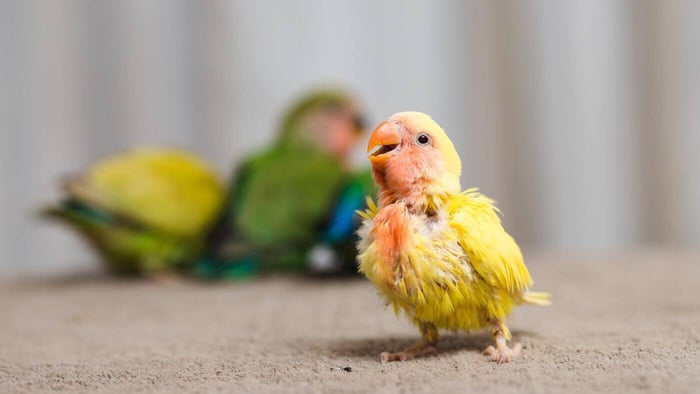
Breeders sometimes advertise fully hand-raised babies, which were taken away from the parents shortly after hatching. Raising and hand-feeding baby birds makes them extremely bonded to humans, which is often seen as a plus, but there are some very significant downsides to it that are unfortunately rarely discussed.
A parrot that hasn't been allowed to "be a parrot" can end up with severe behavioural issues. Separation anxiety, where the bird begins to scream non-stop or pluck its own feathers when you leave, is not uncommon. The same goes for fear of new objects or situations.
Part of the reason this happens is that social learning is absolutely huge in parrots: they learn by looking at other parrots. If you deprive them of this, they end up confused and frustrated. They often try to bond sexually with their owner and don't understand why their natural needs aren't being met.
It's absolutely fine for a breeder to spend lots of time with their baby birds in order to socialise them or even to hand-feed them occasionally. But be very wary of those who pull their babies early, lest you end up with a parrot that thinks you guys are a couple, and that is scared of everything.
5. CITES Registration
Are you planning on buying a rare parrot species? It's not something we'd recommend for beginning parrot enthusiasts, but it is possible to find breeders for some species. Keep in mind that in these cases, you should ALWAYS check if the parrot requires CITES (Convention on International Trade in Endangered Species of Wild Fauna and Flora) registration. If it does, and the breeder can't supply it, both you and they can be held criminally responsible.
You can find a list of parrot species that require special paperwork at The Parrot Society UK.
6. After Buying a Parrot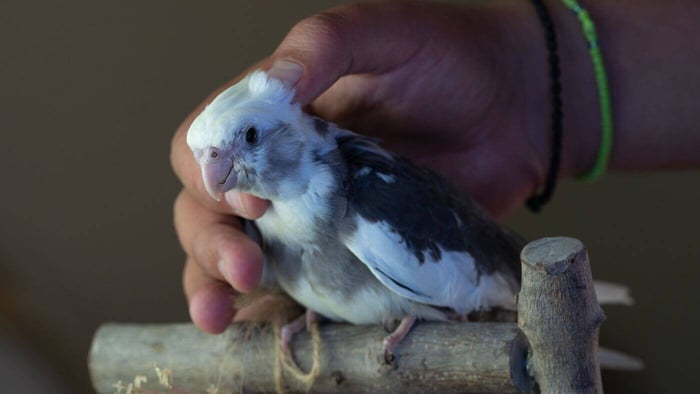
Due diligence doesn't end when you bring your brand-new parrot home! There are still some things to be done. Most importantly, you need to bring the bird to the vet ASAP for a full check-up. If you have other parrots, this should be done before you allow them to be in the same room together, as there's always a small risk of disease.
In order to judge whether you'd ever like to return to the same breeder for a potential second parrot, keep an eye on how they behave now that you've paid for the bird. Do they show any interest in a follow-up? Do they answer any questions that you may have?
Lastly, remember to be patient. Parrots are very intelligent birds, but their braininess also means that they sometimes have a little trouble adapting to new environments. It's not uncommon for a new bird to be skittish or even temporarily bitey until it has settled in. Keep reading up on parrot care and begin working on basic commands like step up as soon as you can!
Conclusion
Adding any type of pet to your family is a big commitment, and this is no different with parrots. Remember, many parrot species can live for decades! This list may seem like a lot to keep in mind while buying a parrot, but it'll help you start things off on the right foot by being an informed buyer and avoiding bad breeders. You'll thank yourself later, trust us. Good luck, and enjoy your new companion – the Team at Parrot Essentials!
FAQs
What should I consider before buying a parrot?
Consider your lifestyle, space for a large cage, time to devote to daily interaction and readiness for potential challenges like health and behavioural issues. It's essential to research the specific needs of the parrot species you're interested in.
Why should I choose a breeder over a pet store?
Breeders are more likely to provide healthy, well-socialised parrots and can offer detailed background information about their birds. Pet stores may not have transparency regarding the origin and treatment of the birds, increasing the risk of getting a parrot with health or behavioural issues.
What are the signs of a reputable breeder?
A reputable breeder maintains clean, spacious living conditions for their birds, feeds a balanced diet and demonstrates a thorough knowledge of parrot care. They should be willing to show you their facilities, discuss their breeding practices, and provide health records for their birds.
What is wing clipping, and should I avoid it?
Wing clipping is a practice where a bird’s flight feathers are trimmed to limit its ability to fly. This can lead to health and behavioural problems and is generally discouraged unless for medical reasons. Look for breeders who do not routinely clip wings.
How do I ensure my new parrot adjusts well to its new home?
Be patient and give your parrot time to acclimate to its new surroundings. Start with basic training commands like "step up" to build trust. Ensure you have an avian vet check the bird shortly after purchase and keep up with regular health check-ups.

